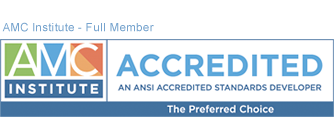Another in a series of articles related to association management selected from our reading list by:
Robert O. Patterson, JD
CEO/ Principal
The Center for Association Resources, Inc.
Any non-profit organization will have two different sections of employees associated with it. One is the paid full time staff called the Executives and the other is the part time unpaid board members. The responsibilities of these two groups of people are completely different. But many a times, the full time executives consider the board members as a hindrance to their day to day functioning. They find it irritating when the board members questions them about their progress. These full time executives have a feeling that they know much more than the board members who work only on a part time basis. Full time executives often fail to understand the background of the board members. The board members usually have double the experience of the full time executives. The board members usually have the responsibility of laying down the objectives, recruiting the full time staff executives and monitoring their progress. If the board finds a particular executive not performing well, then they have every right to question the executive and advise him to improve his performance. This will not be taken easily by the executives. The executives might think that the board members are just acting wildly. This leads to the full time executive taking a grudge against the board members. This will definitely affect the performance of the executive. Hence the board members have to be extremely sensitive to these issues and use all their experience to handle the situation in a careful manner. Their years and years of corporate experience will come in handy.
Now with more and more mentors being employed by the board members to coach the executives of the non profit body, the executives are slowly trying to understand the responsibility of the board members. The mentors will make the executives understand that their responsibilities are completely different from the executive board members. They will make the executives realize that the board members perform their duties from a strategic perspective, whereas the executives perform their jobs from a daily operational perspective. The mentors also advise the board members to show more openness in their decision making approach. This will help to strengthen the bond and improve the trust level between the board members and the executives.







